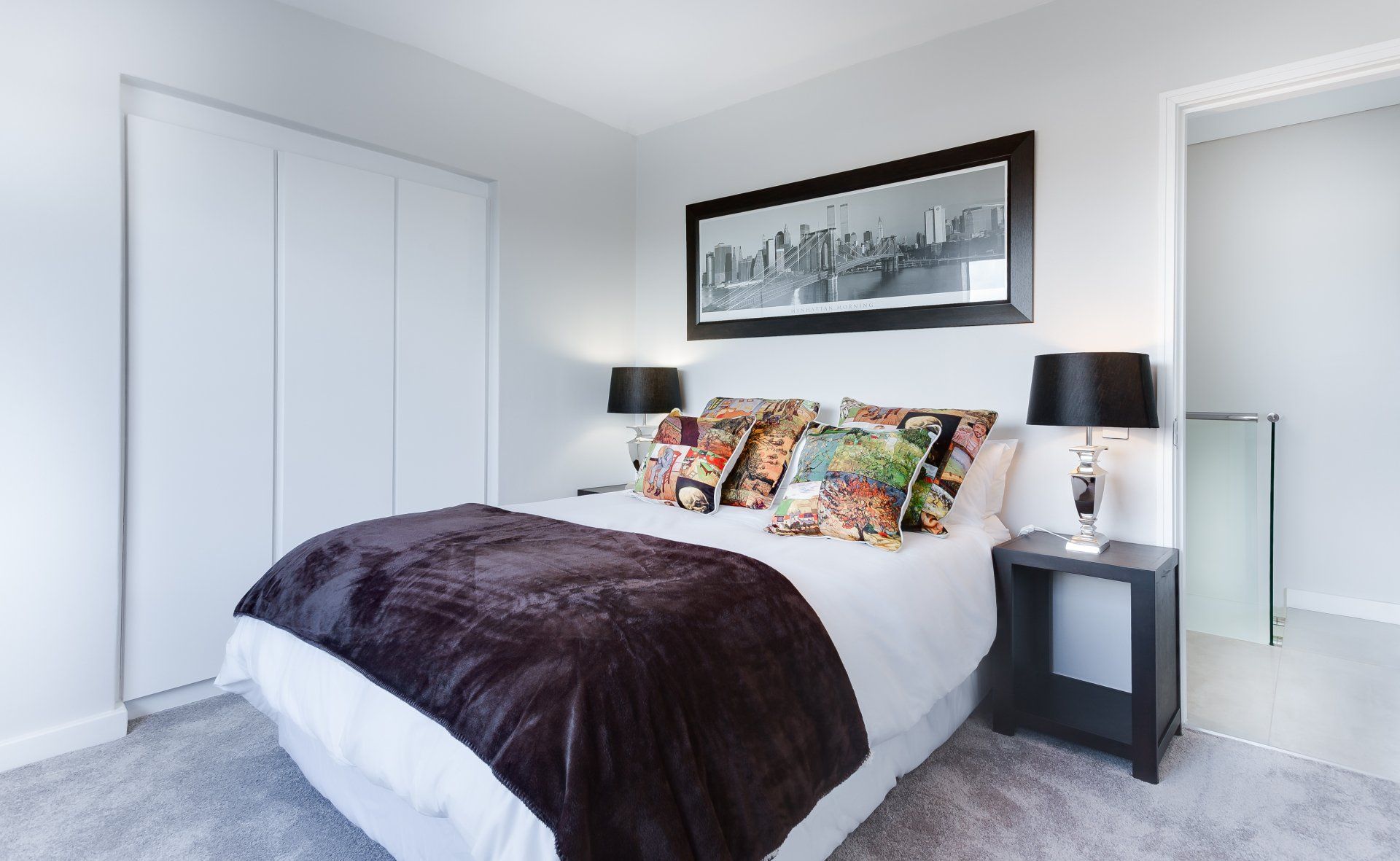Have a spare room? Earn £7,500 a year tax free

With living costs still rising, many homeowners are looking at ways to earn more money or to spend less.
If you're a homeowner and have a spare room, then you could consider taking in a lodger. It can bring a substantial source of much needed income, and with the UK's Rent a Room Scheme the first £7,500 a year is tax free!
But before you open up your house to lodgers, maybe consider these benefits and potential challenges.
The Benefits
1. Additional income
The average room rent is £614 per month (£971 in London), inclusive of bills in the UK - According to SpareRoom's latest Quarterly Rental Index. A sizeable sum each month just by renting out your spare room.
2. Companionship
Aside from financial benefits, taking in lodgers provides companionship, particularly if you live alone or your children have moved out. Sharing your home with likeminded individuals can lead to enriching conversations and shared experiences that can stave off feelings of being lonely.
Humans are social creatures and having a lodger, that you share common interests with, could be beneficial for your mental and physical wellbeing.
3. Sharing of Responsibilities
Lodgers can also share in the household chores and maintenance, easing the burden on homeowners. Having another person to assist with cleaning, gardening, or even DIY tasks can be beneficial for many.
Potential Challenges
1. Loss of Privacy
Inviting someone to live in your home inevitably means a loss of privacy and personal space, which can be a difficult adjustment for some. You may have to relinquish use of your spare bathroom or deal with noise at odd hours.
Some live-in landlords overcome the lose of personal space by only taking in lodgers Monday-Friday. However, this does reduce the pool of potential lodgers, but frees up your weekend for just you.
2. Potential Damage or Disruption
While many lodgers are respectful, there's always the risk of property damage or other disruptions. For example, a lodger might frequently invite guests over, creating discomfort or nuisance for you.
A survey last year by SpareRoom, found that 90% of homeowners who have had lodgers before would consider getting a lodger again. So their previous experiences haven't put them off being live-in landlords again.
3. Increased Responsibility
Taking in lodgers also means more responsibility for you as a landlord. Under UK law, landlords have obligations ranging from providing a safe and habitable environment to protecting the lodger's deposit.
However, as a live-in landlord the rules are much less onerous than being a landlord (not living in the property) with tenants. For example, as a live-in landlord you're able to evict a lodger much easier than if they were tenants.
So, should I take in a lodger?
Whether to welcome a lodger into your home is a decision that needs careful consideration.
On one hand, the extra income and companionship can be attractive.
On the other hand, reduced privacy and potential disruptions need to be managed.
An essential step towards making an informed decision is understanding tenant-landlord laws in the UK and setting clear boundaries and expectations with your lodger from the start. With the right preparation and conduct, inviting a lodger can be the growth opportunity you've been looking for to maximise your property’s potential.
Want to become a live-in landlord?
Pros & Cons
+ Earn an extra £7,500 tax free each year
+ Have extra company in the house
+ Living with like minded lodgers can boost mental and physical wellbeing
+ Extra pair of hands around house to help with chores
- Loss of privacy and personal space
- Potential damage and disruption
- Extra responsibilities
Don't forget to....
- Check HMRC rules around tax and eligibility
- Call your home insurance company to ensure you're covered
- Call your mortgage provider to make sure you're allowed a lodger (most will allow a lodger under existing terms)
- Write up a lodgers agreement
- Get references from potential lodgers
- Take a deposit (typically one month's rent) and protect this money (good news is the tenancy deposit scheme (TDS) does not apply to lodger's deposits)
- Check a lodger's immigration status
A must read...
The government has an extensive guide (England version here) that explains rules and responsibilities of being a live-in / resident landlord. This is a must read.
The guide states you need to:
- Ensure your gas appliances are checked annually by a Gas Safe engineer
- Ensure your home electrics and appliances are safe (checked by a qualified electrician every 5 years)
- Ensure furniture meets fire safety requirements
How to find a lodger
- A good starting point is to post an advert on SpareRoom. Its free.
- Alternatively, if you're wanting exposure on multiple sites (including Rightmove and Zoopla), try OpenRent.
Two or more lodgers?
Check
whether you will become an HMO (house in multiple occupation) and if you need to be licenced or not by your local authority. If in doubt, call and
check with them.
In the news
Was this article helpful? Share with friends and family
Subscribe today to join our exclusive Stepsave community and receive our Money Uncovered newsletter!




